
Providing affordable, accessible, high quality, relevant Science Engineering and Technology programmes
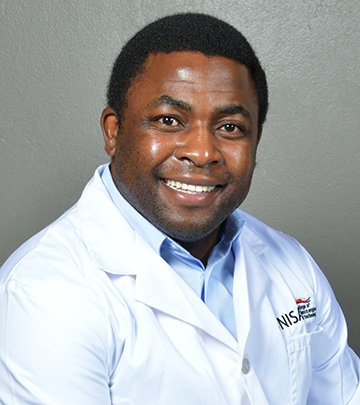
Professor Fulufhelo Nemavhola
Placed under the College of Science, Engineering and Technology’s School of Engineering in the Department of Mechanical Engineering, the Unisa Biomechanics Laboratory is the only such facility selected in Africa to be part of a global project addressing the experimental characterisation of biological tissues. “The selection means that the skills and expertise that are at Unisa and on the African continent are recognised globally,” says Professor Fulufhelo Nemavhola, director of the School of Engineering and a research leader of the Unisa Biomedical Engineering Research Group.
For Nemavhola, the selection also means that the voice of Unisa in the context of experimentally characterising biological tissues, and biomedical engineering in general, is heard. “Going forward, this will attract high-profile collaborations that will enhance our skills and knowledge through programmes such as student exchanges.”
The laboratory has various sophisticated and highly specialised equipment, such as a UStretch, a versatile uniaxial benchtop mechanical tester for biomaterials, and a BioTester 5000 CellScalle designed to make biaxial testing simple so that users can focus on results rather than testing. “The understanding of the mechanics of soft tissues is vital in the development of computational models to study mechanisms of diseases,” says Nemavhola. “We aim to be the best in developing and understanding medical materials to prevent and cure human diseases.”
The Biomedical Engineering Research Group’s research investigations include theoretical and experimental work aimed at understanding various mechanisms of medical conditions. Nemavhola elaborates: “Our primary aim is to understand the material behaviour of tissues in solving health challenges and various diseases.”
Nemavhola remarks: “Computational biomechanics is essential to understand the fundamental mechanisms behind how organisms function, how diseases progress and the way we treat and diagnose disease and injury. The laboratory is meeting medical challenges and creating new devices that can transform future clinical practice in South Africa, especially in previously disadvantaged areas.”
Impact on society and the Unisa community
Dr Harry Ngwangwa, Associate Chair in the School of Engineering, remarks: “As part of the research process, academics and students gain credible supervision from senior supervisors, access to biomedical laboratory facilities, accreditation, and opportunities to publish their research output in journals and presenting papers at local and international conferences.”
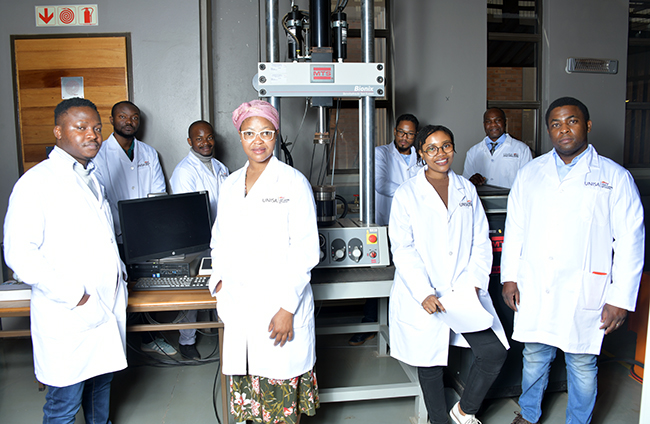 Unisa Biomedical Engineering Research Group
Unisa Biomedical Engineering Research GroupFor the school, it is not simply about developing future engineers, but going beyond that to create future leaders in the area of biomechanics and biomedical engineering. “Therefore, the laboratory values the all-round development of students, not just their academic achievement,” says Ngwangwa.
Engineering designs and tools have had a great impact in solving health problems. “Recently, most medical solutions were based on the trial-and-error system,” explains Nemavhola. “This system has huge disadvantages that may lead to the loss of lives due to, among others, overdose and miscalculation. However, the introduction of engineering in medicine has assisted greatly as engineers are well trained to develop or design systems that are well calculated.”
Growing Unisa’s academic profile
According to Ngwangwa, the selection opens doors to showcase the work that the Unisa Science Campus is doing not only to the South African public, but also to the international community. “This will attract the best academics and students to the department,” he says, “and lead to improved publications that will further put Unisa on the world stage.”
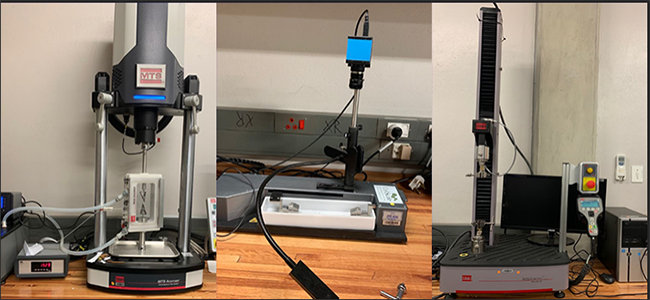
Some of Unisa's Biomechanics Laboratory equipment: MTS Bionix EnviroBath (left), UStretch (middle) and MTS Criterion Universal tensile testing machine (right)
As an academic laboratory with many young researchers, participating in this global initiative comes with advantages. Nemavhola states: “The advantages include an opportunity to learn from more experienced and renowned researchers in biomechanics, to contribute towards the standardisation of biological tissue-testing that is currently not fully standardised, and to market ourselves as a research team and showcase our biological tissue-testing activities to the international community.”
“We hold an annual symposium where academics and students disseminate and share their research findings with local and international collaborators,” concludes Nemavhola. “This year, it will be hosted in November. We have drawn experts from Africa and all over the world to share their research findings. This is an initiative that we intend to develop into an international conference within the next few years.”
*By Nancy Legodi, Acting Journalist, Department of Institutional Advancement
Publish date: 2021/09/20
 Unisa celebrates a project of hope, dignity and student success
Unisa celebrates a project of hope, dignity and student success
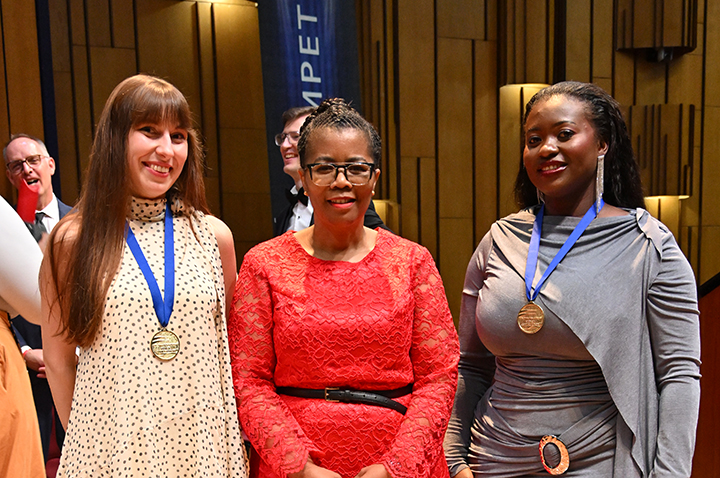 Women vocalists take top honours at Unisa's globally renowned showcase
Women vocalists take top honours at Unisa's globally renowned showcase
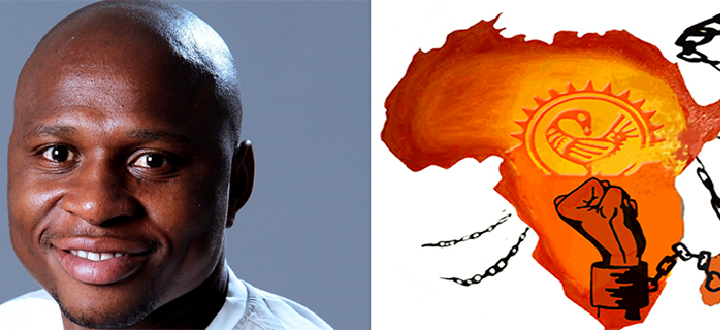 African wealth is dependent on investment in education and development
African wealth is dependent on investment in education and development
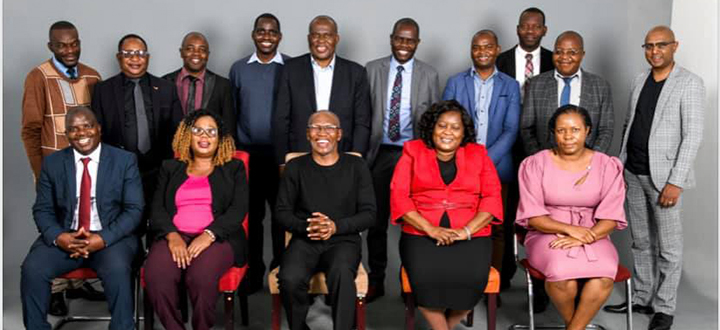 Unisa celebrates matric result success at Correctional Services ceremony
Unisa celebrates matric result success at Correctional Services ceremony
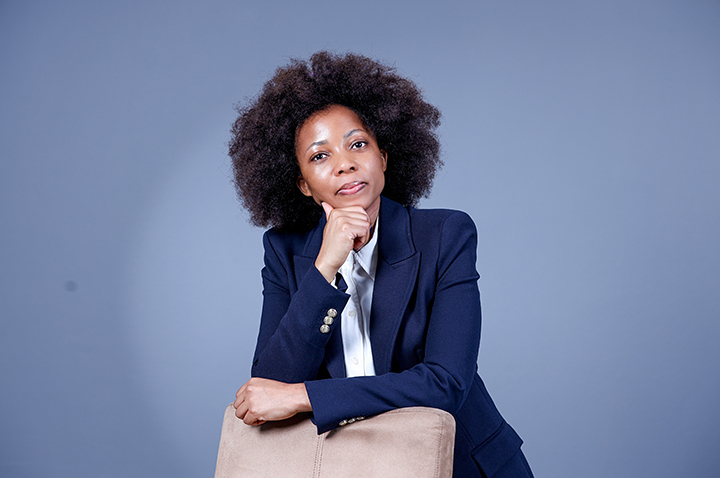 Unisa ICT Director recognised among acclaimed IT leaders
Unisa ICT Director recognised among acclaimed IT leaders